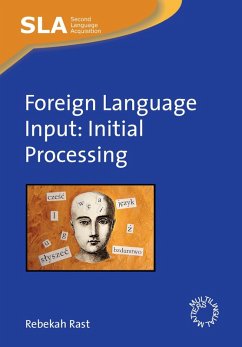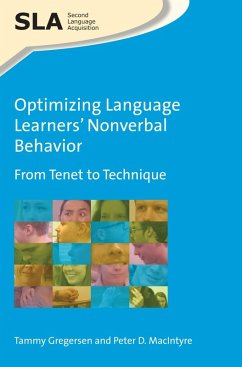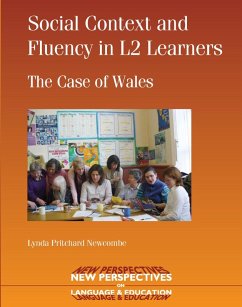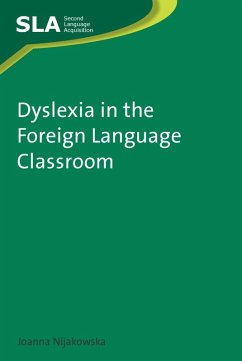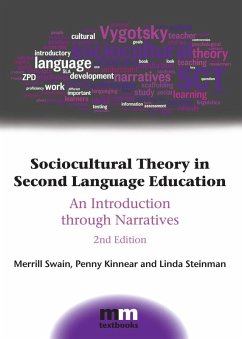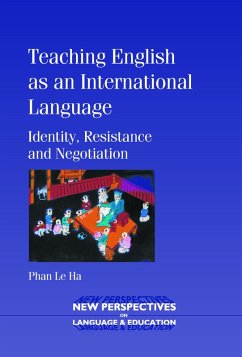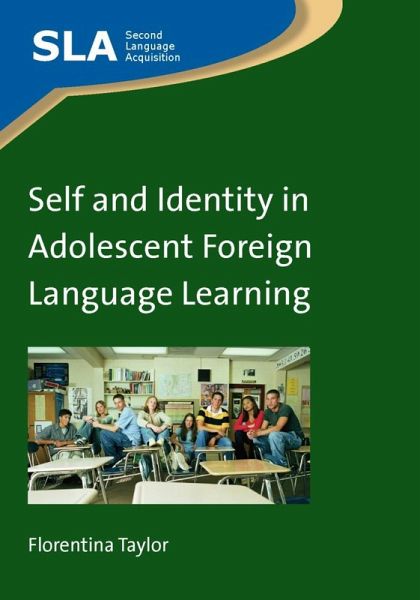
Self and Identity in Adolescent Foreign Language Learning (eBook, ePUB)

PAYBACK Punkte
6 °P sammeln!
This book explores the role of identity in adolescent foreign language learning to provide evidence that an identity-focused approach can make a difference to achievement in education. It uses both in-depth exploratory interviews with language learners and a cross-sectional survey to provide a unique glimpse into the identity dynamics that learners need to manage in their interaction with contradictory relational contexts (e.g. teacher vs. classmates; parents vs. friends), and that appear to impair their perceived competence and declared achievement in language learning. Furthermore, this work...
This book explores the role of identity in adolescent foreign language learning to provide evidence that an identity-focused approach can make a difference to achievement in education. It uses both in-depth exploratory interviews with language learners and a cross-sectional survey to provide a unique glimpse into the identity dynamics that learners need to manage in their interaction with contradictory relational contexts (e.g. teacher vs. classmates; parents vs. friends), and that appear to impair their perceived competence and declared achievement in language learning. Furthermore, this work presents a new model of identity which incorporates several educational psychology theories (e.g. self-discrepancy, self-presentation, impression management), developmental theories of adolescence and principles of foreign language teaching and learning. This book gives rise to potentially policy-changing insights and will be of importance to those interested in the relationship between self, identity and language teaching and learning.
Dieser Download kann aus rechtlichen Gründen nur mit Rechnungsadresse in A, D ausgeliefert werden.






